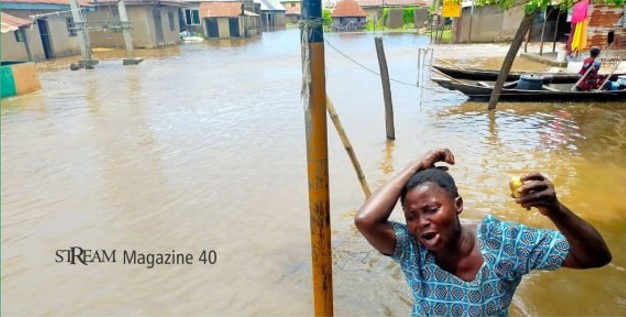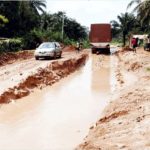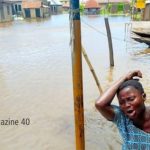A recent Consumer Price Index report released by the National Bureau of Statistics (NBS) shows that inflation peaked at 21 percent in September 2023, one percent higher than the August figures. The average monthly index hovers around nearly 2.0 percent. The inflation onslaught has rendered Nigerians comatose as millions are no longer able to afford the necessities of life. Many factors are responsible for this nemesis. First, is the extremely poor leadership. The Buhari administration which handed power to President Bola Tinubu is regarded as the most incompetent, corrupt, and wicked regime ever, going by the poor leadership, coupled with the Covid-19 tragedy.
Second is the low foreign exchange portfolio which means that too many naira are chasing too few dollars, thereby leading to the current runaway inflation that has taken food beyond the reach of Nigerians in their millions. But there is yet another serious problem that both the government and the citizens are not talking about, and which happens to be the hunger trigger – the perennial flooding that has put many areas on the edge in the country.
Flooding is a cankerworm that is eating deep into the Nigerian fabric. Except for such lucky states as Borno, Benue, and Plateau, no fewer than 32 states of the federation are suffering severe consequences of perennial and calamitous, flooding. These states include Lagos, Ogun, Ondo, Ekiti, Rivers, Sokoto, Zamfara, Taraba, Ebony, Kaduna and Akwa Ibom.
One critical consequence is food insecurity. According to NBS and the International Monetary Fund (IMF), some six out of ten Nigerians do not have enough to eat and the numbers keep growing. IMF has cried aloud that if the calamitous flooding cases in the country were not checked, they would aggravate hunger in the land and escalate food insecurity.
According to Farid Mai of the African Department of IMF, his organization was aware of the challenge of the perennial flood and how it had affected Nigeria and its neighbors, especially Chad and Cameroon. Mai noted that the problem is complicated because Nigeria lacks the requisite early warning systems – a reason why the disaster has wreaked havoc on the nation’s transportation systems, and telecommunication infrastructure.
However, the area where it appears all hope is lost in terms of flood control is in agriculture where thousands of farmers are rendered useless as their farmlands have been washed away. There have been cries from several quarters that Nigeria and its Sub-Saharan neighbors are among the most insecure regions in Africa due to their vulnerability to climate change, the most visible ramifications of which are perennial flooding. One of the concerning outcomes is the yearly $10 billion in food importation that complements the little that is produced locally to feed a population of 210 million people. This population is projected to balloon to nearly 300 in 2050 when Nigeria would have become the third most populous country in the world.
The Minister of Agriculture Dr. Abubakar Mohammed, said in an interview that the government was not unaware of the disaster caused by the perennial flooding, claiming that the government has mapped the agricultural areas and farming settlements that have been affected by flooding and doing everything governmentally possible to ensure they are adequately protected. The Nation quoted him as saying that “the government, through various interventions, is doing everything possible with our development partners to ensure that the floods do not cause food shortage in the country. We are making sure that production does not stop; we are also intensifying effort at dry season farming.”
Another issue that makes the flooding problem complex is that the people affected by the flood disaster do not believe that the government is genuinely concerned about the problem. A community leader in Meiran, Lagos, Mr Adenity Hassan, told Stream that the government’s claim of genuine concern is not true: “If you notice, they have been saying the same thing for over eight years since Buhari came to power. The situation has not changed with the present Bola Tinubu presidency. They claim they are doing something but in reality, they are doing nothing about the problem.
As a result of the grave issues arising from flooding, achieving sustainable development goals becomes problematic. SDG 1 is about the elimination of poverty, and adequate food provision is one of the critical elimination elements. By washing off agricultural lands and farming settlements, food production sustainability becomes a huge task that remains undone most of the time. The chairman of the Non-Governmental Organization (NGO), Flood Watch (FW), Fila Nelson, notes that the more flooding problem, the worse the food security situation becomes in the country. Therefore, according to him, the achievement of SDG 1 and 2, which is basically about the elimination of hunger and poverty among the teeming populace, cannot be overemphasized.
In the Flood Watch members’ discussion with the Stream team on how the perennial flooding problem can be minimized, the following solutions to the problems were arrived at:
- Nigeria should work hard to enhance its early warning systems and capability to ensure that flooding wreaks less havoc. Nelson agrees that the current early warning systems of the Nigerian metrological agency need to be revamped to make them useful.
- Education and enlightenment programs are needed to sensitize people to the problem. Nelson’s colleague, Timothy Duru, notes that “it is unfortunate that flood control and improved agricultural output are not prioritized in primary and secondary school teaching. Even in our universities and tertiary education, they are minimized. And what’s more, the nation’s agricultural training institutes are not doing enough if they do anything at all”
- A long-term solution is the best approach to resolve the issues of flooding in the country, especially in the context of food security. According to Duru, this involves the following:
- Reliable policies should be reworked and vigorously implemented. One such policy is the one that tackles the menace of waste dumping. Flood control cannot succeed if people continue to disobey the rules that take care of the environment.
- Construction of underground drainages. Since the money to do this does not come cheap, the government should have a budgetary allocation each year for the construction of functional drainages. The residents of the Imota community in the Ikorodu area of Lagos State which plays host to Africa’s largest rice mill, are already calling on the Lagos government to construct proper drainage to ensure that the rice milling complex does not go down the drain. The nation’s drainage systems, whether at the federal, state, or local government levels, are nothing to write home about at present.
- The government and the relevant agencies should have the proper programs in place to check the spread of diseases from flooding. The International Rescue Committee (IRC) and United Nations Children’s Fund (UNICEF) have, over the years, been craving the government’s attention on the need for these programs. This is the time to act.
The focused discussion panel also agrees that the climate change priorities of the government must be reworked. Investigations show that Nigeria contributes less than 1 percent of the global greenhouse emissions while the countries of the Global North are the main cause of more than half. The Nigerian government should begin to press these countries for support since their disastrous emission troubles are chief triggers of the climate change that causes the perennial flooding. They should be told to take responsibility for their ruinous activities.












